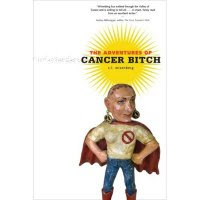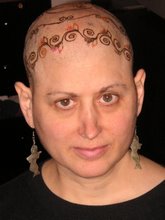
What question, Tony used to ask, is this the answer to?
I guess you're thinking, O, that's what they do on Jeopardy. But Tony was Anton Kaes, a Germanist at Berkeley, and this was a seminar for professors, and he would ask this about a film from the Weimar period, or advice in a German women's magazine, and we would turn our brains around to conjecture.
Today I went to the Siskel Film Center at 2:15 and left for home at nearly 11pm, with an hour break for dinner. I sat through the four parts of Hitler: A Film From Germany, and it appears that you can watch it for free here. Tony has written about the film, but I haven't read all of his interpretation and analysis. I don't know everything that I think about it. It will take time to absorb. But it seems that the question the movie is the answer to is: How do you explain what Hitler means to Germans in a way that doesn't use the expected tools: heavy voiceover, Treaty of Versailles, runaway inflation, salutes and soldiers, tanks, extermination camp images, etc.? How do you rouse the viewers out of the torpor of their expectation of the expected? By creating new images: by a young girl in a black cloak made shiny with film loops laid on it, and she is instructing an inert puppet or doll of King Ludwig. By elaborate, theatrical sets that look like they're made up of what was in the back rooms of an antique store. By repeating the speeches of Hitler and his henchmen, and repeating that we are Hitler and Hitler is Germany. By the image of a Hamlet holding a skull marked Jude. The film is a pastiche of radio broadcasts and surreal monologues by the Nazi puppets, by an actor speaking the memories of Hitler's valet as he walks in front of zoomed photos of Hitler's offices. His "project," as the academics would say, was to find Hitler's meaning in a soul-deep way, by using music and shadow and making stage-pictures to affix themselves in your brain. The movie came out in 1977 and I wonder if it would have changed me, how it would have changed me, if I'd seen it then. I spent my junior year abroad in Paris 1976-77, and I wonder if the film was showing in Paris while I was there, or if it was released later. (See video essay on the film here.) It was shown in the US, in Chicago. If I'd seen it new, would I have dismissed it, baffled and scornful, or would I have embraced it? Would it have broke open my deep melancholia, which was a result, first of all, of my temperament, and second, of my severe doubt that I would ever be able to have the life of a writer? Would it have wakened me to the possibilities of creating a personal interpretation of art and politics? Would it have shown me that I could do what I taught myself to do later--dig into the past and shape what I found there until it became one collage-story told in my voice? Would I have made a turn and sought out my destiny in political performance art? Would it, I'm wondering, have changed my life?
























